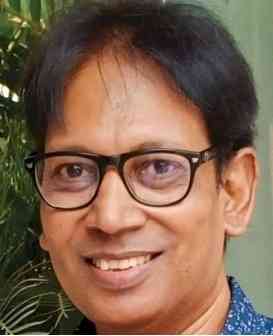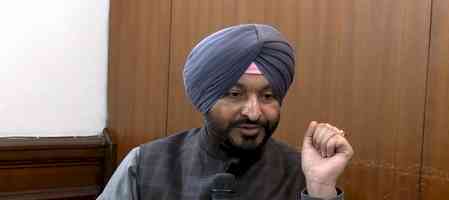News Lost in Dopamine Hits
Today’s media mirrors a collective restlessness. The attention span of humanity has shrunk into eight-second dopamine hits called Reels. Here’s a Bliss reality check on the future of journalism and communication.

By Narvijay Yadav
The world of communication has quietly shifted layers, like a snake shedding its skin. For decades, it meant a formal press release, a press conference, a half-page coverage, and a polite follow-up call to the reporter. That era now belongs to history.
In a digital world that scrolls faster than it reads, your press release is now your Instagram story, your narrative is your LinkedIn post, and your crisis statement is a 30-second reel that decides whether the world trusts you or trolls you.
Watching veteran communicator Neeraj Jha in conversation with another sharp newsman, Vishal Krishna, on his Beyond My Brand podcast was a gentle yet firm reminder that we have entered an age where perspective matters more than platforms. Journalism today is fatigued, losing agency, and slowly surrendering editorial freedom. When mainstream media is controlled by power blocks - the question is no longer about truth; it is about control of narrative.
And yet, amid this chaos, one thing stands tall - the power of storytelling. You can flood the world with AI-written articles, but an authentic voice still cuts through the noise. AI can give you data, but it cannot offer wisdom. It can assemble facts, but it cannot offer perspective. That comes from lived experience, from scars of failed pitches, late-night newsroom battles, and the emotional intelligence earned through human connection. As Vishal Krishna aptly says, “Good writers with perspective are irreplaceable.”
This is the Bliss Lens moment, where clarity pierces through the fog of digital noise. From a wellness standpoint, today’s media mirrors a collective restlessness. The attention span of humanity has shrunk into eight-second dopamine hits called Reels and Shorts. We no longer consume long-form content unless it touches something deeper; an insight, a personal truth, a raw vulnerability. Reputation is no longer managed in newsrooms; it is managed in digital micro-moments.
In this era of ChatGPT, influencer reels, AI prompts, and algorithmic amplification, the CorpCom Head is no longer just a spokesperson. They are a silent crisis monk, managing perception in a watertight chamber where leakage is more dangerous than silence. As Neeraj Jha cautions, “Crisis management is not about reacting when things go wrong. It is about predicting which spark can turn into a digital wildfire.” Ninety percent of crisis communication, he says, is proactive consciousness, not reactive statements; a philosophy that aligns deeply with the ‘5AM Bliss’ belief that awareness precedes action.
Another sharp truth he mentions deserves reflection: “Journalism can be taught, but reputation management cannot be taught in any school.” That is why journalists with a decade of field experience often become the most natural PR leaders. They sense nuance, read between the lines, and respect the emotional undercurrents of communication. They don’t just write; they decode intent.
As I reflect, one thing becomes crystal clear: the future belongs to those who can merge communication with consciousness. The frenzy of posting should not bury the purpose of presence. Reels without perspective are noise. Press releases without authenticity are dead on arrival. AI without emotional depth is just an echo.
So what do we need moving forward? Writers who think like strategists. Strategists who write like poets. PR leaders who meditate before they communicate. Journalists who understand that wellness and clarity are communication tools. Because communication without inner clarity is nothing but verbal exhaustion.
As the Bliss community often reminds us, “Whatever you think, you get.” If communication leaders think only in terms of visibility, they will gain attention without trust. But if they think from awareness and perspective, they will build reputation with longevity. And that, is the real game.
The writer is a senior journalist & author.
(Views are personal)



 City Air News
City Air News 









